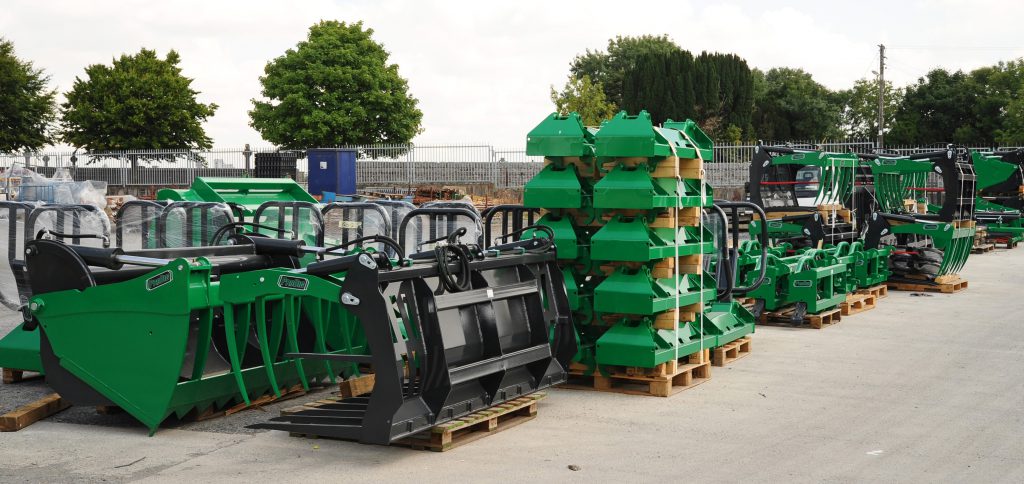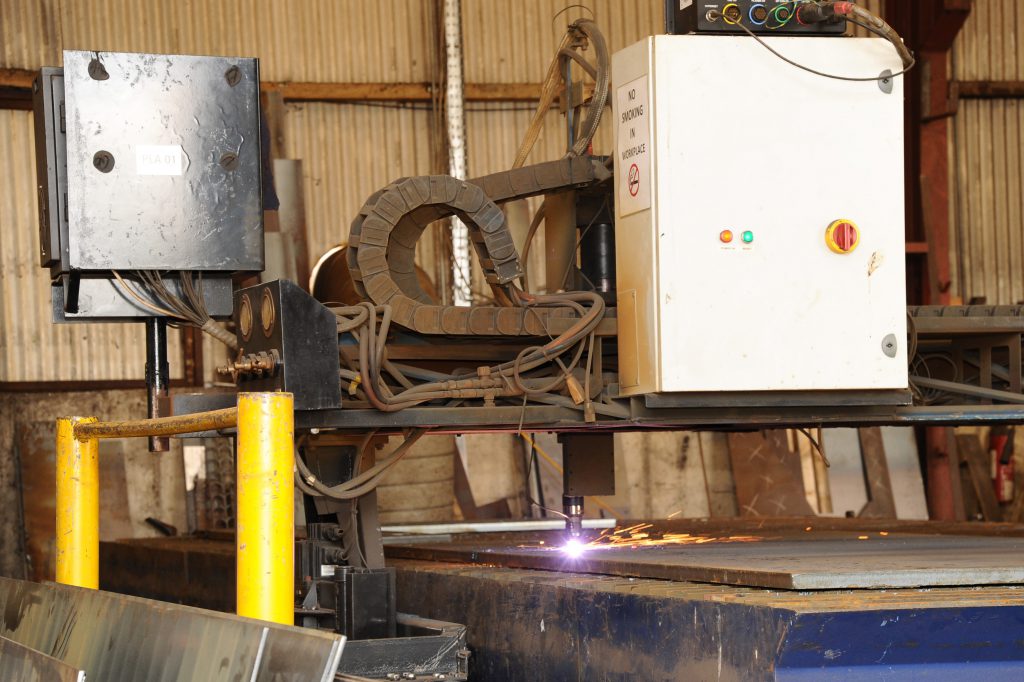“We have the product; we have the demand; what we don’t have is the production capacity.” As dilemmas go, it’s not the worst to be confronted with. ProDig Attachments, Co. Carlow, is not complaining.
Indeed, the family-owned company is not the type to complain. It just gets on with what it does best – looking for ways around problems.
It’s an approach that has seen it survive the economic storms of the last decade, while gradually growing in strength, product range and turnover. The entity now employs around 40 people at the factory, with an anticipated doubling of capacity over the next year (as an extension is built onto the existing buildings).
Attachments for loaders and tractors are not the big-ticket items that immediately catch the imagination. Yet it is in this field of engineering that ProDig has made such a name for itself.
CNH (Case New Holland) invited it to become a preferred supplier, while its largest foreign agent considers its product to be “the best for quality and value available”. That’s quite an accolade – coming from Germany.
“Germany is ProDig’s major export market,” explained Damien Cahill (see main/featured picture), sales manager for Ireland and the UK. “We send around two or three trailer-loads a month over to Guther Schmihing, who then sells it throughout the continent.”
In Germany itself, there is apparently a good trade with bio-digester units that feed ensiled maize throughout the winter. “Push-off buck-rakes are very popular for this job, as the silage pits are huge,” said Damien. “However, it’s rare that we sell one in the Republic of Ireland.”
In Ireland, it is the folding grass fork which reigns supreme – as the tool of choice for contractors. ProDig first started making such units in 2013. It now offers versions of up to 16ft (4.9m) in width.
Responding to the market with new products is key to the success of any company. Damien points to the ‘Shear Genius’ attachment (pictured below; designed for farmers with diet feeders) as a further example.
This contraption apparently performs up to four tasks. The first is as a shear-grab, taking silage from an open pit-face.
The second is as a straight bucket, for loading concentrates into the tub. The third and fourth combine to cut a round bale and simultaneously remove the polythene and net.
All of this is done with just one hydraulic service and a proportional valve – a neat arrangement that allows the whole loading cycle to be performed with just one attachment.
All of the design work for this machine was done in-house by Eamonn Nolan, who runs the business with his two brothers, and a colleague. Computer-Aided Design (CAD) is a great boon to engineering companies, but it doesn’t come cheap.
Eamonn recently invested €15,000 in just a single upgrade to this system. It can show the various stresses that might be generated within an implement, as it would progress through its working cycle.
Field testing is still important, however.
Product pitch
The company does not claim to make the cheapest products on the market.
“The aim is to make the implements lighter and stronger – through design and material selection,” Eamonn pointed out. He explained that the science behind steel production has “come on massively over the last 10 years”.
“Mild steel is now just a commodity; we tend not to use it,” he added.
Instead, the Swedish Hardox brand features strongly in ProDig’s catalogue. Other “high grades of steel” are routinely used for non-wearing parts.
Looking forward, the company plans to complement the capabilities of CAD with the introduction of robotic welding. This will entail some fundamental changes in the design procedure; the journey to this sort of automation will “not be rushed”.
Yet, there is still an undeniable skills shortage in the area. Experienced welders are hard to come by.
“Apprentices take time to train,” noted Damien.
Eamonn feels that there is simply not enough effort made to develop engineering skills in the Irish workforce.
“We bring in a welding tutor to upgrade the skill of our own welders,” he explained. “They all say that they learn more in three days than they ever did on a government course.”
Other plans to increase capacity include the erection of a new shed to cover what is presently an open yard.
Within this space, the company will install a shot-blasting line (to enable the use of a quicker paint-application system – solving a bottle-neck in the production process).
A new plasma cutter is also on order – with twin torch heads. It promises to greatly increase the rate of component manufacture.
ProDig’s methodology goes to prove that the adoption of a wide gamut of technologies is not just the preserve of the big, global manufacturers.
It is happily embracing new techniques in a bid to improve both the quantity and quality of its products. This apparent quality, it would seem, is appreciated the world over.
During AgriLand’s visit to the factory, the firm was busy preparing its next shipment for New Zealand – a specific task that comes around at least six times each year.













